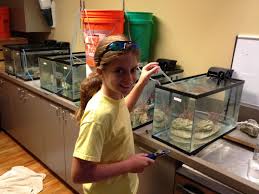 A young mother approached our offices. She stood there with her wide-eyed 8-year-old whose angelic face was framed by frothy red curls. The mother hesitated until one of the educators beckoned her in with one hand while holding a basket of teaching supplies with the other.
A young mother approached our offices. She stood there with her wide-eyed 8-year-old whose angelic face was framed by frothy red curls. The mother hesitated until one of the educators beckoned her in with one hand while holding a basket of teaching supplies with the other.
The mother stammered, “I want to teach my daughter at home. She has learning disabilities. I—I saw what the public school system did to my son. I–I can’t afford to pay for a private school.”
The words kept coming out. You know. You’ve been there before. Those moments when you don’t know if you are doing the right thing for your child.
What do you need to teach them? What curriculum should you follow? How do you teach it to the kids? How much will it cost? Can you explain it well — or help them as they wade through the knowledge themselves?
The worst question you can ask yourself is, “What will they think of us?”
People can be so judgemental, and educators all over the world can be very defensive. Take this article from Malaysia, for example. Despite homeschooling gaining popularity since 2010, professionals worry that the homeschooled students aren’t being held to a rigorous standard. Zakaria Kasa, who heads the Education and Human Development Cluster of the National Professors Council fears that children that are homeschooled aren’t well rounded with extra curricular activities. He fears that the children will not be as social.
Deborah Loh noted the same thing in The Nut Graph is also one of the parent’s worries.
Homeschooling in Malaysia is a bit behind us here in America in terms of networks and groups. According to Karen Lange, a 16+ year veteran homeschooler and mentor, it is these networks and groups, however, that alleviate these very basic concerns. When you work with others, you are better able to give your children the best of the world.
 For academics, you can reach out to others with a deeper knowledge level, different communication styles, and different ways of teaching to show your child all the angles to a topic. You can work with tutors for a few weeks to a few years. Even public lectures at the local university, churches, or other MeetUp can open a lot of doors of knowledge.
For academics, you can reach out to others with a deeper knowledge level, different communication styles, and different ways of teaching to show your child all the angles to a topic. You can work with tutors for a few weeks to a few years. Even public lectures at the local university, churches, or other MeetUp can open a lot of doors of knowledge.
Then, in the realm of the social, it’s as easy as getting out of the house. Visit local museums on their free or low-cost days, join 4H or Scouts, and definitely join sports, even if it’s just a team at the local YMCA. With a variety of activities, it’s hard not to make friends, learn the social ropes of the world at large — and even build up immune systems when the annual cold goes around.
We live in a world of information. People are practically tripping over themselves to get your attention and give you knowledge. There are lots of resources locally — both at the library and museums, but also through groups like Scouts, 4H, and tutors. Don’t discount the possibilities of MeetUps and other conferences. If your kids are old enough, they might even want to see an industry specific one to see what their options are later in life.
You can do this.
No matter where you are in the world, Malaysia to America, Russia to Antarctica, there are creative resources at your fingertips to make it happen. You can look locally and online. You can look at companies like us, independents that advertise with flyers in the university hallways.
There are a lot of naysayers out there. Some of them mean well because they want to see people succeed, and others just don’t understand the nature of education. Take a deep breath. Know that if it doesn’t work out, you can always enrol back at a public, private, or community school. Know that if you give your children the skills they need, they can do anything. They can go to university, they can get high skills job, or anything else they put their mind to. But, they will do it knowing that their willingness to work for their visions is what will make it real.
